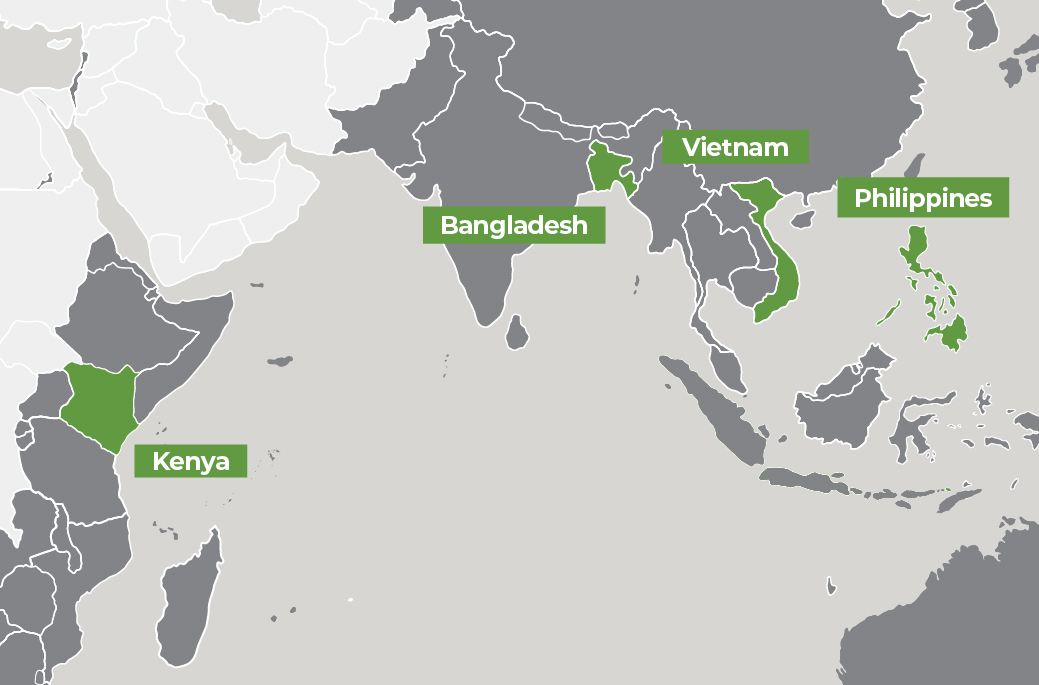Overview
This project aims to prioritise animal health governance as a sustainable development priority, focusing on capacity goals at local, national, and regional levels. Seeking to mainstream gender equality and social inclusion concepts into the research design, it also seeks to identify opportunities for poverty alleviation, gender equality, and food security in animal health governance.
The project also aims to identify sustainable cooperation opportunities amongst stakeholders to share in animal health governance, and to engage in high-level uptake of the research and recommendations.
Climate change and the rising of natural disasters, food insecurity, the public health and economic devastation of COVID-19, the war in Ukraine, and the growing multipolarity in international governance organisations, are dividing resources and political capital. These crises contribute to food and nutritional insecurity, loss of livelihoods, and emerging zoonoses. To ensure sustainable prevention practices, improved animal health surveillance, response, and control are necessary, requiring a sustainable commitment that is often economically, politically, and socially challenging.
Progress in animal health disease governance relies on individual nation-state commitment and evaluation frameworks like the WHO International Health Regulations (IHR) Monitoring and Evaluation Framework (MEF) and the WOAH Performance of Veterinary Services (PVS) Pathway. Tools like the FAO Epidemiology Mapping Tool (EMT), Laboratory Mapping Tool (LMT), and Surveillance Evaluation Tool (SET) promote coordination but often overlook social environments.
To date, progress in animal health disease governance has relied on individual nation-state commitment through evaluation frameworks such as the WHO International Health Regulations (IHR) Monitoring and Evaluation Framework (MEF) and the WOAH Performance of Veterinary Services (PVS) Pathway. Other tools, such as the FAO Epidemiology Mapping Tool (EMT), Laboratory Mapping Tool (LMT), and Surveillance Evaluation Tool (SET), try to improve coordination between human and animal health sectors in countries. However, they often overlook social factors.
Compliance with new governance adaptations requires understanding who is best served and who may be excluded or negatively impacted. Divergent experiences and opinions exist on the importance of systematic versus symptomatic animal health surveillance, responsibility for insurance and compensation for detected diseases, prioritisation of vaccinations, and availability of trained animal health professionals.
Ensuring the well-being of animals, in the long run, involves changing how we encourage communities and countries to commit to it. We also need to find and work on opportunities and partnerships in the region to gain political support. The gender equality and social inclusion (GESI) approach looks at the aspects of society that give power to local communities. This empowers them to change their behaviour and ensures that the government is accountable for overseeing animal health.
Through discussions with the community, government, and regional stakeholders, the Indo-Pacific Initiative for Sustainable Animal Health Cooperation (IPI-SAHC) will identify opportunities for improving animal health governance in the Indo-Pacific region.




